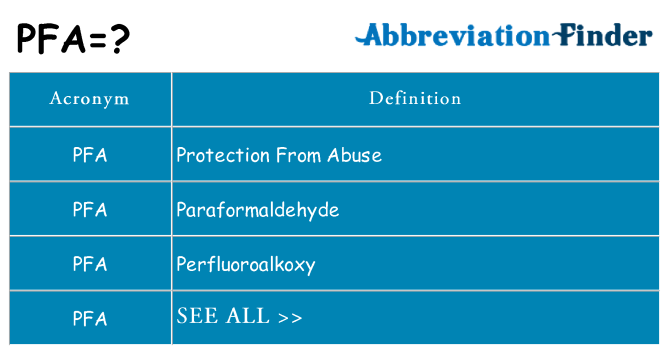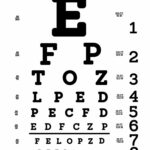The acronym “PFA” is a chameleon, morphing to fit the context it inhabits. It’s not a monolithic entity with a singular, unwavering definition. Instead, it’s a linguistic placeholder, ready to embody a range of meanings depending on the domain it occupies. This ambiguity, while occasionally frustrating, is also its strength, allowing for efficiency in communication within specific fields.
In the realm of formal communication, particularly in the professional arena, PFA most commonly stands for “Please Find Attached.” Think of it as a digital herald, announcing the arrival of supplementary documentation. It’s a courteous, almost ritualistic phrase used in emails to ensure the recipient is aware that there’s something more than just the body of the message awaiting their perusal. It’s a signal, a flag waving to draw attention to the crucial file lurking just below the salutation.
Its utility here is undeniable. It preempts the awkwardness of sending an email without explicitly mentioning the attachment, preventing the recipient from overlooking vital information. In essence, PFA serves as a small, but significant, act of professional due diligence.
However, to assume that “Please Find Attached” is the *only* meaning of PFA is to fall into a trap of myopic thinking. The acronym’s adaptability extends far beyond the confines of corporate correspondence. Consider the world of polymer chemistry, a realm populated by molecules of astounding complexity and crucial technological applications.
Here, PFA adopts a distinctly different persona. It metamorphoses into an abbreviation for perfluoroalkoxy alkane, a high-performance fluoropolymer prized for its exceptional chemical resistance and thermal stability. These materials are the unsung heroes of countless applications, from lining chemical processing equipment to insulating wires in demanding environments. Their inertness makes them ideal for situations where other polymers would simply succumb to degradation.
These materials are often deployed in environments where lesser compounds would face inevitable degradation. PFA, as a fluoropolymer, boasts near-universal chemical resistance.
The difference between “Please Find Attached” and perfluoroalkoxy alkane illustrates the critical importance of context when interpreting acronyms. Ignoring this principle can lead to confusion, miscommunication, and even potential errors, especially in technical or professional settings. To illustrate further the point, in the sphere of mental well-being, there exists yet another interpretation of the acronym.
Within the domain of mental health and personal development, PFA can signify “Psychological First Aid.” This framework, designed to provide immediate support and stabilization to individuals experiencing distress after a traumatic event, emphasizes empathy, active listening, and practical assistance. It is a practical approach during an emotional crisis. It is less a medical treatment and more an application of humane responsiveness.
Psychological First Aid practitioners aim to create a safe and supportive environment where individuals can process their experiences and begin their journey toward recovery. The principles guiding this approach prioritize compassion and empowerment. The goal is not to diagnose or treat, but rather to offer a comforting presence and connect individuals with appropriate resources.
And the variability doesn’t end there. In the intricate world of telecommunications, PFA can be an abbreviation for “Power Fault Alarm,” a critical indicator of potential disruptions in network operations. This early warning system allows technicians to proactively address issues before they escalate into widespread outages, maintaining the seamless flow of information that underpins our interconnected world. This interpretation underscores the vital role of redundancy and monitoring in maintaining reliable telecommunications infrastructure.
The Power Fault Alarm alerts signify the network’s vulnerability, allowing operators to enact preemptive countermeasures.
Furthermore, venturing into the realm of finance, PFA can also represent “Personal Financial Advisor,” a professional who provides guidance and support in managing financial resources, planning for the future, and achieving long-term financial goals. A Personal Financial Advisor is a strategic guide navigating the complexities of investment options.
These professionals offer tailored advice based on individual circumstances, helping clients navigate the often-daunting landscape of investment, retirement planning, and estate management. In this guise, PFA embodies trust and expertise, providing individuals with the tools and knowledge to make informed decisions about their financial well-being. They act as guides, helping their clients negotiate the ever-shifting tides of the market.
The potential ambiguity of PFA highlights the absolute necessity of considering context when interpreting abbreviations. Before assuming its meaning, one must first analyze the surrounding text, the field of discussion, and the intended audience. Failure to do so can result in misinterpretations and potentially consequential errors. To definitively discern meaning necessitates contextual awareness. A cursory glance risks misconstruing intent.
The multifaceted nature of PFA, while initially perplexing, also serves as a reminder of the richness and complexity of language itself. Acronyms, like PFA, are linguistic shortcuts, designed to streamline communication within specific communities. However, their meaning is never absolute, always subject to the ever-shifting currents of context. Therefore, a vigilant and thoughtful approach to interpretation is always paramount. Consider the audience, the subject matter, and the overall tenor of the communication. Only then can you confidently decipher the true meaning of PFA and avoid the pitfalls of miscommunication.









Leave a Comment